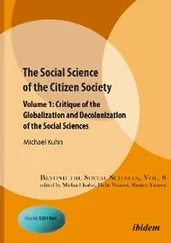The forerunner of the modern age of globalization was the age of industrialism, which began with the creation of the railway network, the steam fleet, the telegraph, etc., which qualitatively changed the artificial habitat of the homo sapiens species, such as it was created under feudalism. The whole way of life changed fundamentally.
Typically, the starting point of globalization is traditionally considered to be the struggle of colonial empires for the partition of Africa, followed by the Anglo-Boer War 2 2 Davidson, A.B. Cecil Rhodes and His Time. / Sesil Rods i ego vremya. M.: Mysl., 1984, 367 pp.
, which opened the period of a global struggle for the redivision of the world, including the two World Wars. Thus, by the beginning of World War I, the concept of imperialism, initially directed against the dominance of the British Empire, had been formed and had become a generally accepted political term.
Lenin’s famous work Imperialism, the Highest Stage of Capitalism (1916) 3 3 Lenin, V.I. Imperialism kak vyshays stadiya kapitalisma. M.: Lend, 2019, 128 pp.
, which emerged from the Russian Marxist school of thought, was by no means the first attempt at constructing a “theory of imperialism”. It was created based on a polemic with the earlier work of Karl Kautsky 4 4 Kautsky, K. Natsionalnoe gosudarstvo, imeprialisticheskoe gosudarstvo i soyuz gosudarstv. M.: Delo, 1917, 94 pp.
. It also contains references to earlier works by German, French, and British authors, in particular to J.A. Hobson’s Imperialism 5 5 Hobson, J.A. Imperialism. A study. London: Nisbet, 1902, 400 pp.
.
Evaluating this work post factum , a century later, we can state that Lenin, as a representative of the Marxist paradigm, was indeed successful in identifying the essential signs of the new stage of the development of capitalism, which are fully manifested today. These included more than just the tendency to monopolize markets, which had replaced “free competition” a century earlier, a notion that had become an ideological construct. Another factor was the leading role of financial capital, the flow of revenues from the real economy to the financial economy, the rapid development of capital exports, the transformation of metropolises into “rentier states” (Rentnerstaat), and the new role of banks as centres of economic management. The role of joint-stock companies and subsidiaries, which form, in the contemporary vernacular language, transnational networks, was emphasized. These structures later became one of the key phenomena that determined the development of globalization as a qualitatively new stage of socio-historical development of humanity.
Lenin also noted that German capital tended to be exported to the British colonies “over the head” of the metropolis, bypassing colonial affiliation, that is, the tendency of financial capital to jointly exploit third countries, which fully manifested after World War II, at the neocolonial stage.
As we can see, the theory of imperialism created within the Marxist paradigm of the early twentieth century already contained all the features typical of the late twentieth and early twenty-first centuries, that is, it was able to define the main features of globalization a century before it happened. Only a chain of terminological innovations prevents us from seeing behind the “globalization” of the twenty-first century a direct continuation of the “imperialism” of Cecil Rhodes’s times 6 6 Davidson, A.B. Cecil Rhodes and His Time. Sesil Rods i ego vremya. M.: Mysl., 1984, 367 pp.
, which, as we are convinced today, was appropriately viewed by contemporaries from a theoretical standpoint.
However, at the end of the twentieth century, the formation of such a systemic phenomenon as globalization took place against the background of the struggle of socio-political systems. Some countries preferred capitalism. This implied that the society would develop with an emphasis on economic and social organizations, which acted separately from the state. Other countries preferred socialism, which implied the strengthening of the state and largely planned development of the national economy. Globalization as a phenomenon, which determined the further course of social development, emerged, first of all, based on the non-state economic structures of Europe, the USA, and other countries that had close economic and political ties with them. Correspondingly, the ideological support of this process emerged within the framework of the scientific and ideological paradigms of the Western world. As a consequence, the theory of imperialism, which had emerged within the ideological paradigm of Marxism, and had been quite established and quite adequate for social practice, was undeservedly forgotten. Globalization seemed something fundamentally new.
Nevertheless, despite the first manifestations of globalization, the impressive growth of international trade in terms of quantity and finance, nation states and regional blocs of the age of imperialism and industrialization generally maintained a closed-off economic, political, and informational space. In this situation, internal ties prevailed over external interactions. The state could be viewed as a closed, self-regulating system, with adjustments for foreign trade. The world, in this case, could be studied as a sum of its parts, the description of which did not require their consideration in the context of a global supersystem.
The globalization threshold was reached at the moment when the leading states of the world, preserving nominal sovereignty, de facto turned into open socio-economic systems. Their dependence on the global supra system, including international political and financial institutions, increased significantly and rose to a qualitatively new level. The influence of these structures on the economic, social, and cultural life of the population has become comparable with the influence of national governments.
However, one can legitimately talk about globalization as a leading trend in world development only starting from 1991, from the moment of the collapse of the Soviet Union. At that time, the forms of social life that were characteristic of Western civilization received an impetus for spreading globally. The crucial importance of that year lies not only in the political elimination of the USSR but also in the fact that the countries that appeared on the territory of the Soviet Union and its former allies became involved in the “global community” and the global market economy (which significantly strengthened the connectedness of the world system).
From that moment onward, a wave of similar and almost simultaneous liberal economic reforms took place both in the West and in developing and post-socialist countries. The reforms included the privatization of crucial state monopolies – railways, energy, communications, education, and medicine. That was the beginning of the crisis and the dismantling from above of the classical industrial-era bourgeois state and its social institutions. The stage of “privatization of the welfare state” and the strengthening of the role, the “revenge”, of the elites began. During this period, the state lost its role in the economic and social sphere of social life and, increasingly, became a tool that served the situational interests of large economic entities.
Up to a certain time, there was no unified socio-economic environment in the world, but only some large and, as a consequence, politically, ethnically, and culturally heterogeneous states (including empires) with comparatively closed economies. They were included in a rather limited number of local or regional trade and economic systems.
At the same time, any imperial-type state, be it the Roman Empire or Genghis Khan’s state, the Arab Caliphate or China, aimed at maximum possible spatial expansion and the acquisition of new subjects. They sought to reach the natural geographical limits of territorial growth – the seas and low-productivity mountainous and desert areas devoid of population and communication routes. Sooner or later, however, empires reached the peak of their expansion, after which there was a political crisis caused by limited internal ties, fragmented imperial elites, and growing borders in need of military protection.
Читать дальше












